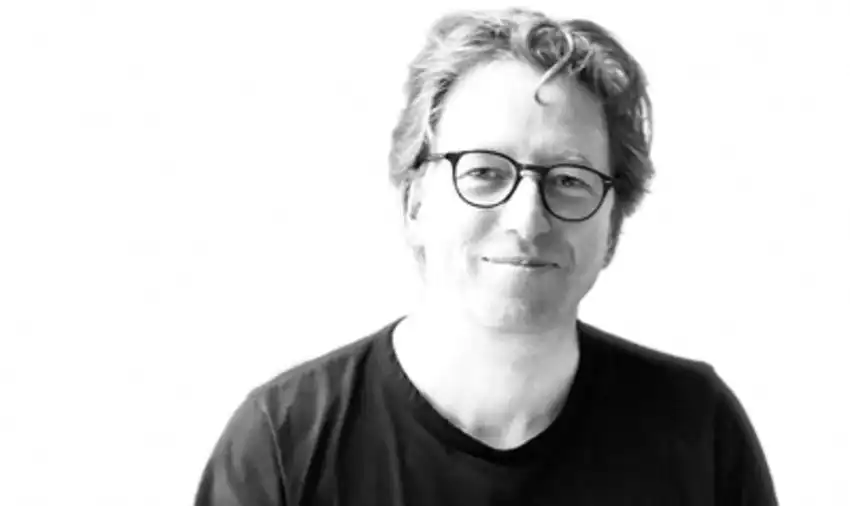Home>"The Age of Economists," Interview with David Duhamel
23.02.2023
"The Age of Economists," Interview with David Duhamel

David Duhamel teaches the course “The Age of Economists: Globalization, Growth and Inequalities” in the 2023 Summer School.
David Duhamel earned his doctorate in specialized economics, with a specific focus in the history of economic thought, and is a professor at Sciences Po in Paris, as well as at the Sorbonne. He is an author and consultant of numerous films which explore questions of economics, such as “The New Wolves of Wall Street,” and delivers offbeat presentations on complex topics related to economics such as “Ecoland.”
What makes the history of economic thought so relevant today?
Economics is at the forefront of all the main issues and challenges of our time. Climate change is seen through a cost/benefit analysis. Rising inequality is understood (wrongly) as a conflict between fairness and efficiency. Growth, secular stagnation and de-growth are by essence economic questions. Globalization itself is made legitimate by the prosperity it brings, while its losers - those who fuel populism in general and Trumpism in particular - are defined as “losers” due to their stagnating economic status. Finally, technological changes, rising artificial intelligence, and “winner takes all” schemes lead to questions about the future, universal basic income and so on. Despite the fact these questions appear to be related to contemporary issues, they have in fact existed for centuries. In order to understand them today, one must learn about yesterday.
The Covid-19 pandemic has had a far-reaching impact beyond the realm of public health, affecting economies, political systems, and public policies in countries all around the world. How does your course engage with these current events?
My course gives an overview of the history of economic thought, where we talk about growth, inequality and globalization. I start the course in the prehistory and go until present day. The pandemic is an important subject of conversation as well. We discuss it while we are talking about Keynes and how economic policy can react to such a crisis, and in terms of international relationships, or perhaps a new Cold War between the United States and China. There is virtue in studying it while it is ongoing, and from as many different vantage points as there are people in the class, including myself.
Students at the Summer School come from a variety of academic backgrounds and countries (in 2022, students represented over 50 different nationalities). What does this diversity of perspectives (both international and academic) bring to your course?
Diversity is everything. It enhances my experience as a teacher…and a happy teacher is an interesting one! It also enriches the students’ experience as they confront the differing viewpoints of people from different backgrounds. I always encourage dialogue between students.
At the Summer School, I’ve had students of different ages; some of them were just barely starting their education post high school, while others are working professionals in their 30s, so the diversity is definitely there.
How does your course prepare your students for the further studies in the social sciences?
It gives them a good layer of what we call at Sciences Po “Culture Générale.” In the humanities, we touch upon subjects that are very interesting, but students haven’t often discussed or thought about such subjects. We would talk about economics, secular stagnation, second demographic transition, climate change, rising inequalities and what can be done about them. This course gives students a taste for the discipline, and it pushes them to dig deeper on their own. It’s really also about making them understand that economics and social sciences are interesting and very relevant to understand the world.
What is the most important thing that students will get out of your class?
Best case scenario? They will gain some knowledge about the economic ideas and the debates that are structuring our time (see above). A taste for the discipline of economics and for research. And most importantly, that this knowledge is acquired with what the Greeks call “Meraki”: doing something with soul, creativity or love, when you put a part of yourself into what you do.
What do Summer School students think about the course “The Age of Economists”?
Read a quote from our anonymous student satisfaction survey:
"It was the best class in economics I have had so far! I am glad to have encountered an academic who approaches current issues from such a critical and analytical perspective. I was stunned by the teaching methods of David Duhamel. At no point did I ever feel bored, and I think I can speak for the whole class that he captivated us with his stories and his open-mindedness; there was room for critical discussions on almost anything."
Apply to the Summer School
Prospective students
Contact us
Email: summer.school-at-sciencespo.fr
Phone: +33 (0)1 45 49 55 05